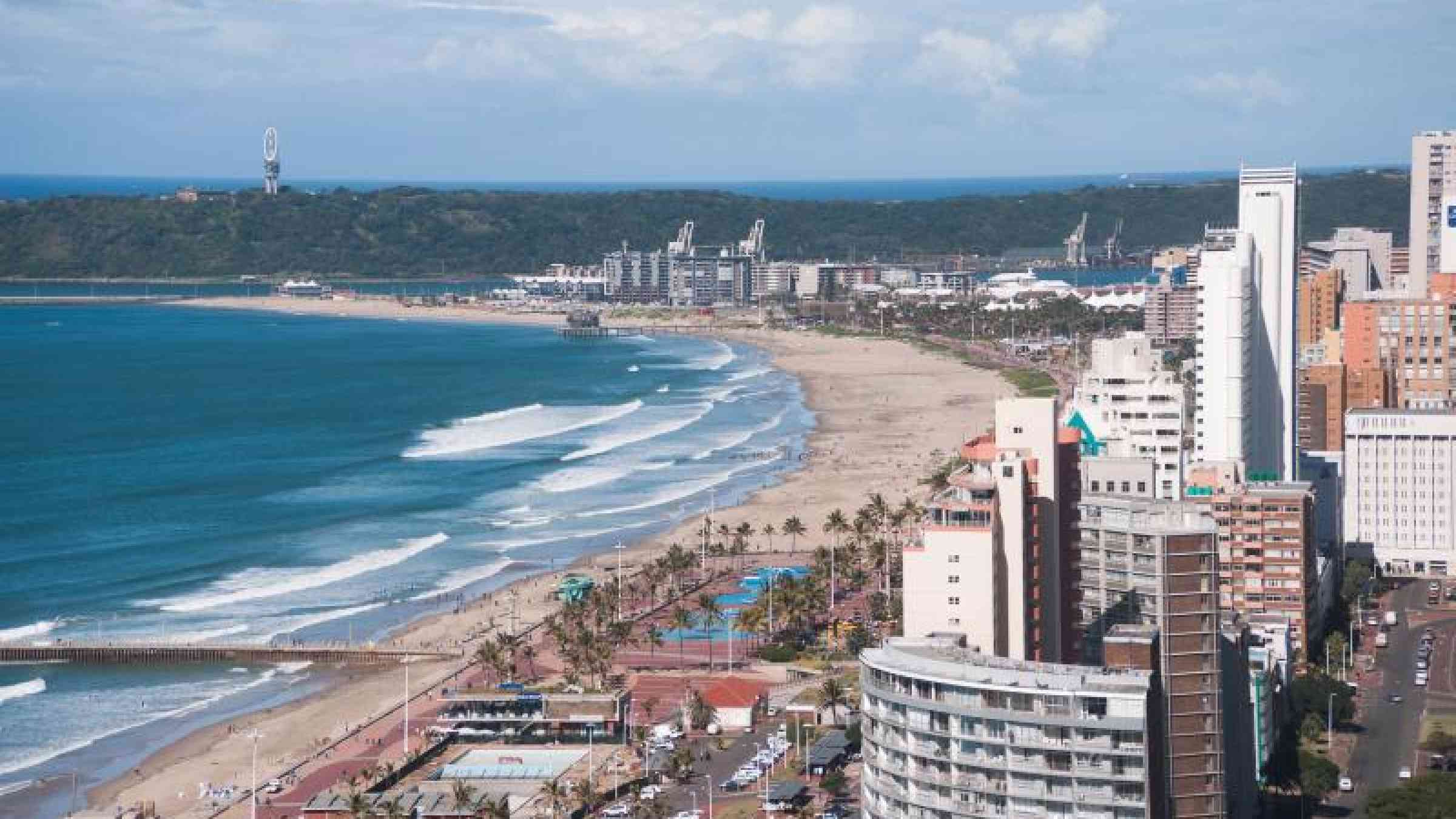Inspiring climate adaptation action in Africa's cities

By Karen Brandon
New SEI work highlights adaptation projects that illustrate how Africa's urban areas can adapt to climate change and work toward achieving the UN Sustainable Development Goals.
"Inspiring Climate Action in African Cities" brings together 17 case studies that offer insights into creative ways that urban and pari-urban areas have found to address complex social, economic, and health issues that are surfacing with climate change. The publication shines a spotlight on cities' adaptation, a crucial issue for a contnent that is increasingly urban in nature. Africa's cities, already struggling to cope with the rapid influx of people from rural areas, now confront the ramifications of climate change, including more extreme temperatures, more severe flooding and more prolonged droughts, all with ramifications for the health and safety of people living in the urban areas that are poised to become the world's next "megacities."
Against this backdrop, “Inspiring Climate Action in African Cities” provides is intended to spark ideas that may prove fruitful in addressing complex, interwoven climate-related issues at urban and peri-urban scales - within Africa and beyond - for adpating to climate change and for addressing many of the UN's Sustainable Development Goals (SDGs). The approaches, which involve the efforts of governments, aid agencies, private businesses, NGOs, and individual community members.
Among the case studies are:
- The Buffelsdraai Community Reforestation Project in Durban, South Africa – Initiated to provide a carbon offset for the 2010 Fédération Internationale de Football Association (FIFA) World Cup games hosted in Durban, the project established a buffer zone for a city landfill. The project created local jobs by hiring people to cultivate and plant native trees in former sugar cane fields.
- The Goreangab Water Reclamation Plant for the City of Windhoek, Namibia – The plant reclaims domestic sewage for potable water use.
- The “Vivre avec l’eau” (“Live with water”) partnership in Dakar, Senegal – The project, which provided infrastructure to address flash flooding, involved extensive capacity-building work with community women and youth who were involved with the project, and led to the creation of urban gardens. The working paper is part of a wider research project, Future Resilience for African CiTies and Lands (FRACTAL), which aims to improve scientific knowledge of future climate trends in Southern Africa, and to deepen urban policy-makers' understanding of how climate change will affect water and energy services. The project is funded by the UK Department for International Development and the Natural Environment Research Council.